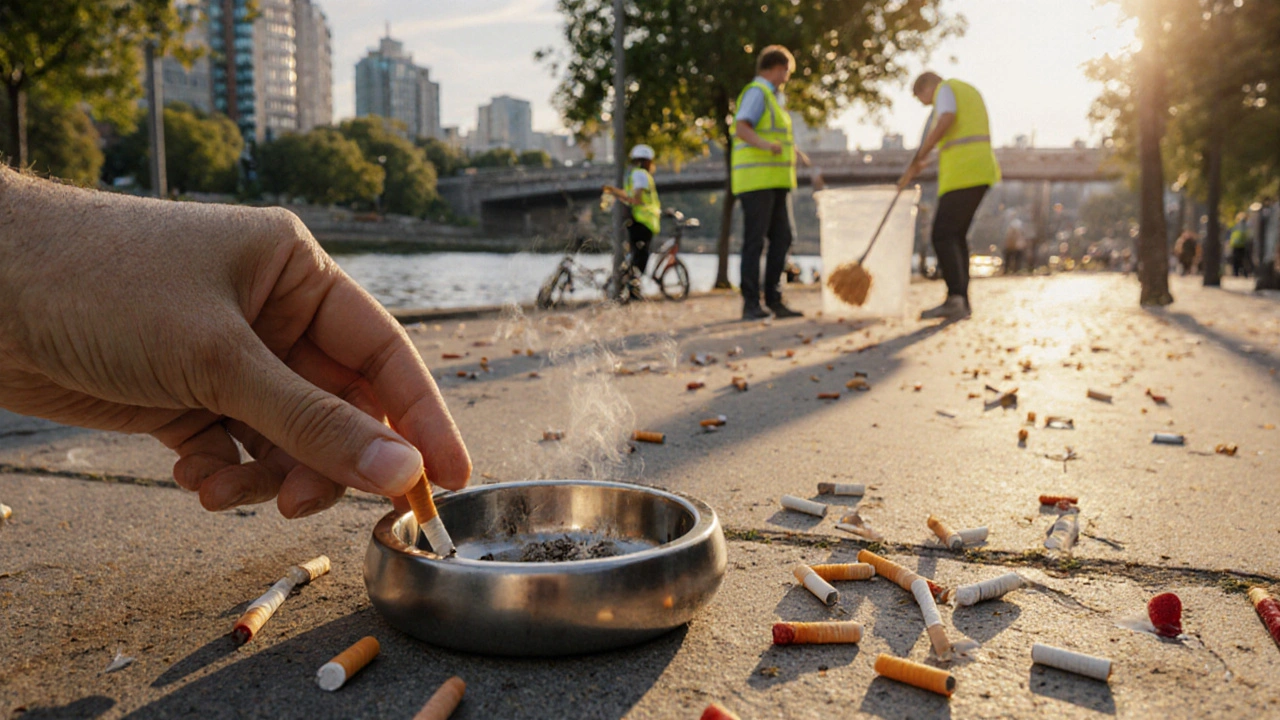
Explore how cigarette waste harms ecosystems, water quality, and wildlife, and learn practical steps, policy actions, and biodegradable alternatives to reduce the impact.
When talking about cigarette waste, the term covers everything that’s tossed after a cigarette is smoked – the butt, paper, filter and packaging, also known as tobacco litter. It’s more than just an eyesore; each discarded piece carries chemicals that seep into soil and waterways. Environmental impact, the way cigarette waste damages ecosystems, adds toxic load to oceans, and contributes to micro‑plastic pollution is a growing concern for cities and wildlife alike.
Beyond the visual mess, public health, the collective well‑being of communities exposed to tobacco litter suffers when toxins like nicotine, heavy metals and carcinogens leach into rainwater. Children playing in parks can pick up butts, unknowingly ingesting harmful substances. Studies show that neighborhoods with high cigarette litter see increased rates of respiratory issues, partly because the chemicals linger in the air and on surfaces. The risk isn’t limited to smokers; anyone breathing the same polluted air can experience irritation or allergic reactions.
Another hidden threat is the rise of microplastics, tiny plastic fragments that result from the breakdown of cigarette filters. These particles travel downstream, ending up in oceans where they are ingested by fish and eventually enter the human food chain. The link between microplastic exposure and hormonal disruption is being studied, but early evidence suggests a possible impact on fertility and metabolic health.
Cleaning up cigarette waste isn’t just about aesthetics; it directly reduces exposure to hazardous chemicals. Community clean‑up events that focus on picking up butts can lower local toxin levels by up to 30%, according to a 2023 municipal report. When cities invest in more ashtrays and enforce littering fines, they see a measurable drop in both waste volume and related health complaints.
For individuals, simple steps like carrying a portable ashtray, disposing of butts in sealed containers, or using biodegradable filters can cut personal contribution to the problem. On a larger scale, supporting policies that ban single‑use filters or that require manufacturers to fund recycling programs can drive systemic change.
Below you’ll find a range of articles that dig deeper into each of these angles – from the chemistry of tobacco toxins to practical tips for reducing litter in your neighborhood. Whether you’re a health professional, an environmental activist, or just someone who wants a cleaner park, the resources here will give you clear, actionable insight.

Explore how cigarette waste harms ecosystems, water quality, and wildlife, and learn practical steps, policy actions, and biodegradable alternatives to reduce the impact.